Resignation Letter Template for Personal Reasons
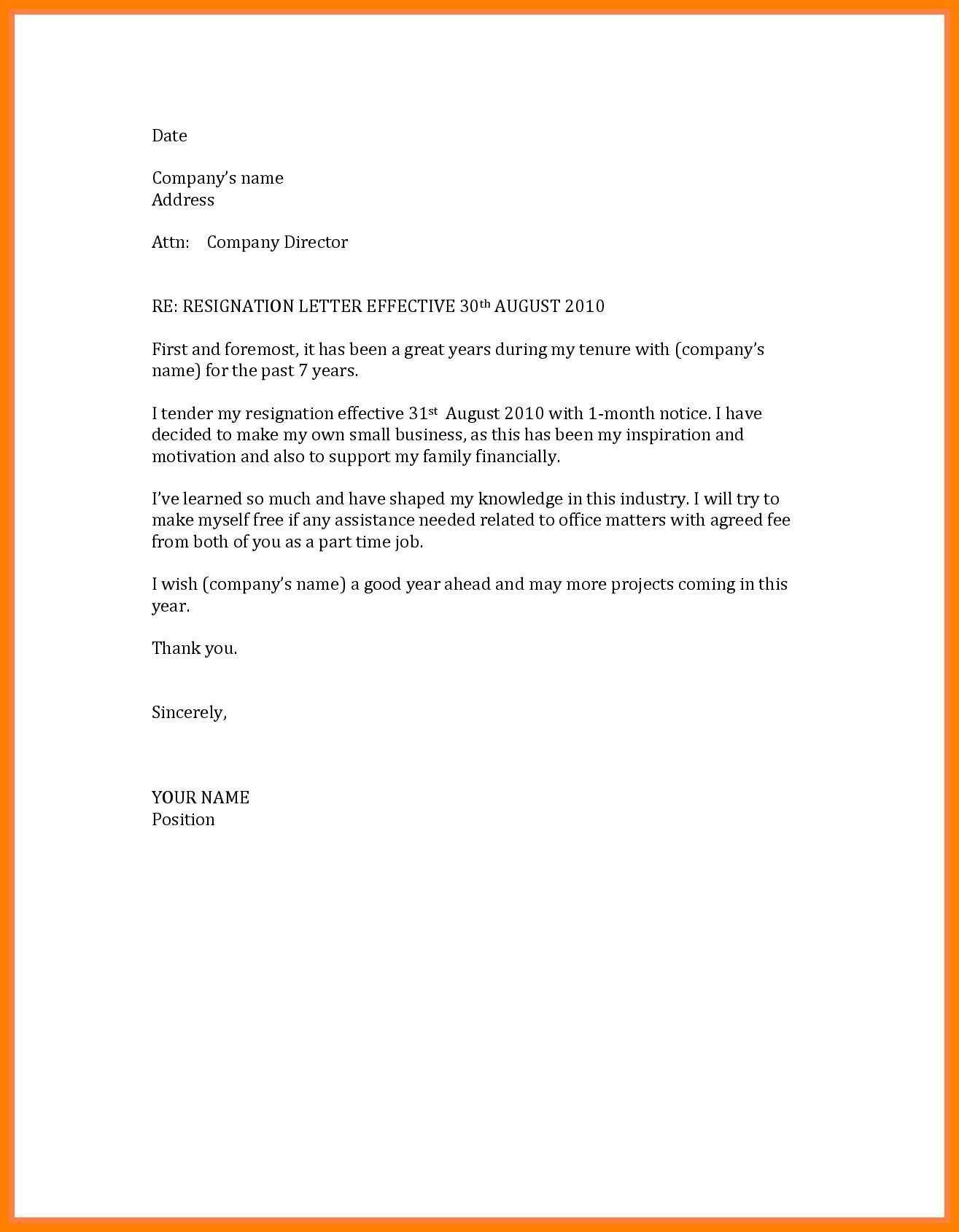
Leaving a job is often a difficult decision, especially when it involves a more personal situation. Crafting a thoughtful and respectful message to inform your employer can make the process smoother for both parties. While it can be tempting to keep things vague or informal, it’s essential to maintain professionalism throughout the process.
In this guide, we’ll explore the best way to write a thoughtful farewell message that balances your need for privacy with your desire to leave on good terms. Whether you’re facing unexpected life changes or simply seeking a new path, your departure notice should reflect your appreciation for the opportunities provided while being clear and concise.
With the right approach, you can ensure a smooth transition and preserve your professional reputation, even in sensitive circumstances. Here, we’ll walk you through how to create a message that fits your situation and meets workplace expectations.
How to Write a Resignation Letter
Leaving your current position is a significant decision that requires careful thought and clear communication. When you decide it’s time to move on, crafting a formal message to inform your employer is essential. A well-written notice not only communicates your departure but also maintains a professional tone throughout the process.
Here are some key steps to follow when drafting your notice:
- Start with a clear statement: Open by directly stating your intention to leave the company. Mention the specific date when your departure will take effect to ensure clarity. This will set the tone for the rest of the communication.
- Express gratitude: Acknowledge the positive aspects of your time with the company. This can help leave a good impression and show appreciation for the opportunities you had during your tenure.
- Be concise and to the point: Stick to the necessary details and avoid overly elaborate explanations. There’s no need to go into too much personal information, especially if it’s a sensitive matter.
- Offer assistance with transition: If possible, let your employer know that you are willing to assist in the transition process, whether it’s training a replacement or helping with ongoing projects.
- End on a positive note: Finish by wishing the company continued success. This will help ensure that you leave with a positive relationship and a lasting impression.
By following these steps, you can ensure your departure is handled professionally and smoothly, leaving you in good standing with your employer and colleagues. A respectful and well-structured message is a key step in making your transition as seamless as possible.
Understanding the Importance of Personal Reasons
When it comes to leaving a job, the circumstances surrounding the decision can vary greatly. In many cases, the motivations behind such a choice are deeply personal and may involve factors that are not immediately obvious to others. While discussing these matters can be challenging, it’s important to acknowledge their significance and handle them with care and respect.
Here’s why understanding the importance of these factors is crucial:
- Privacy and sensitivity: Personal situations often involve private matters that employees may not feel comfortable disclosing in full. It’s essential to maintain a sense of respect for an individual’s privacy, regardless of the situation.
- Professional integrity: Even when the reasons for leaving are deeply personal, it’s important to leave on good terms. By addressing your departure thoughtfully, you help preserve your reputation and keep future relationships intact.
- Maintaining positive relationships: The manner in which you exit can influence how you’re remembered by colleagues and managers. Handling the situation with care ensures a positive legacy and keeps professional networks intact.
- Reducing uncertainty for employers: While it’s not always necessary to provide extensive details, offering a clear explanation–without oversharing–helps employers better understand the situation and facilitates the transition process.
By approaching the situation thoughtfully, you can manage the delicate balance between your personal needs and your professional obligations. Understanding the weight of such decisions ensures that the transition is handled smoothly and respectfully for all parties involved.
Maintaining Professionalism When Resigning
Exiting a company gracefully requires careful consideration and a professional approach. How you handle your departure can have a lasting impact on your reputation and future opportunities. Whether you’re moving on for personal growth, new challenges, or life changes, it’s crucial to maintain a respectful and professional demeanor throughout the process.
Respectful Communication
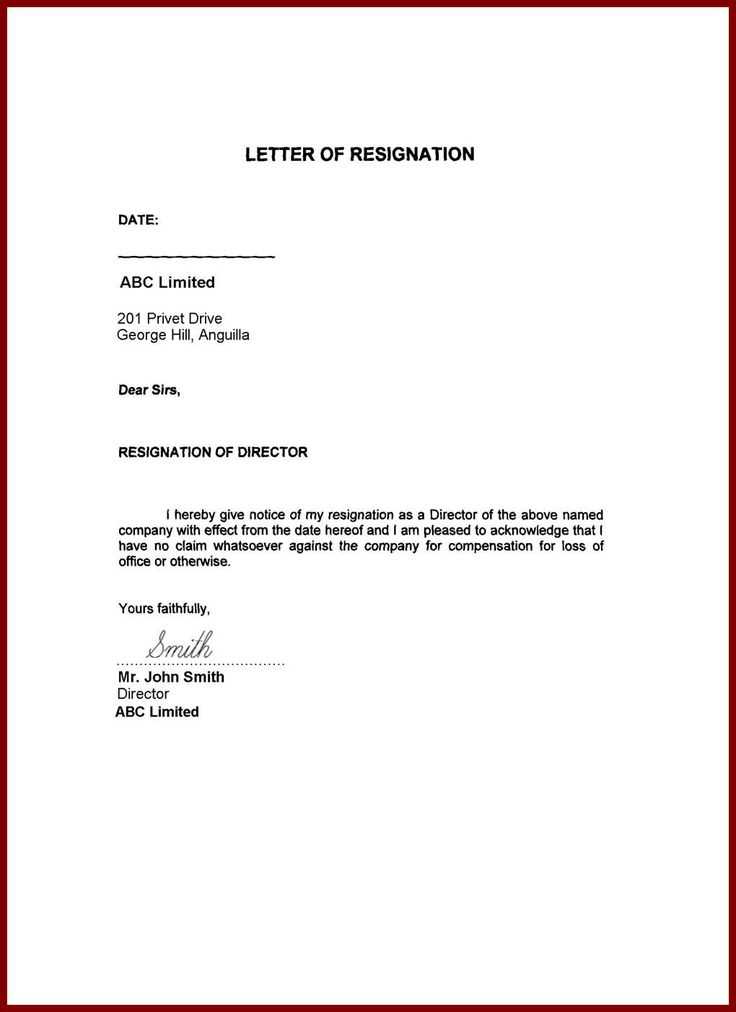
When it’s time to leave, ensure that your communication is clear, respectful, and thoughtful. Avoid burning bridges by expressing gratitude for the opportunities you’ve had while at the company. Even if your decision is based on difficult personal circumstances, a calm and courteous message will help preserve the relationships you’ve built with colleagues and management.
Ensuring a Smooth Transition
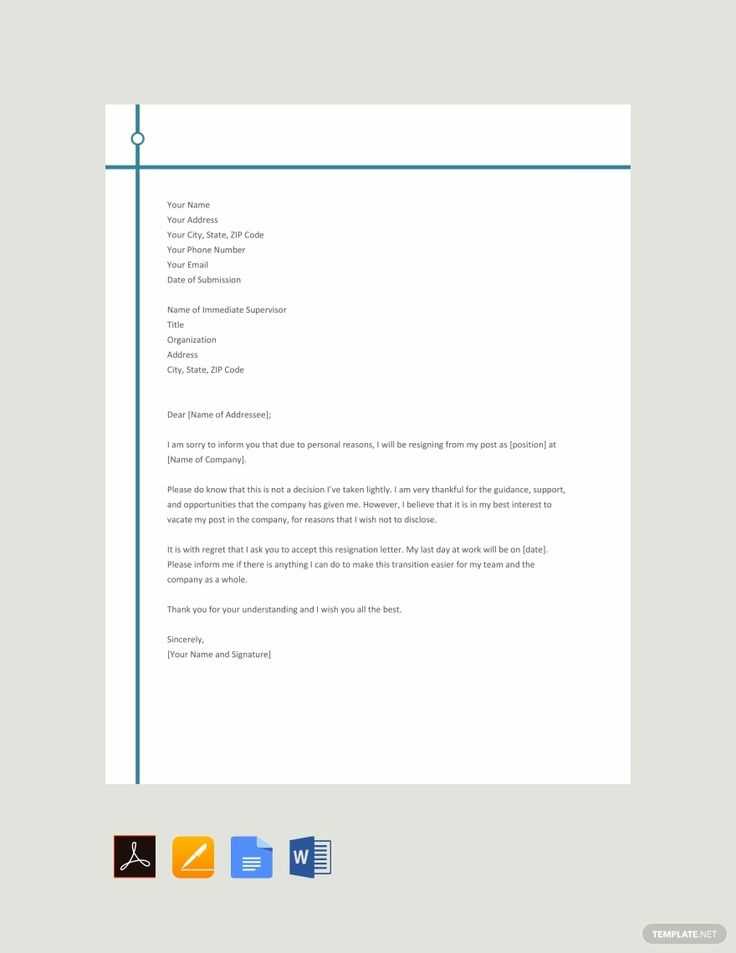
Offer to assist with the transition in any way possible, whether it’s by training a replacement, completing outstanding projects, or helping with the handover process. This proactive approach demonstrates your commitment to the company, even in your final days, and shows that you are invested in the success of your team, even after your departure.
By handling your exit with professionalism, you leave behind a positive impression and ensure that you remain in good standing, which can be beneficial for future professional relationships and opportunities.
Essential Information to Include in Your Letter
When you decide to inform your employer about your departure, it’s crucial to include the right details in your communication. Providing clear and concise information helps ensure a smooth transition and avoids unnecessary confusion. The content of your message should cover essential aspects of your exit while maintaining professionalism and respect for the company.
Key Details to Cover
Your message should be clear, professional, and cover several important elements to avoid misunderstandings. Below is a table outlining these key points:
| Information | Description |
|---|---|
| Effective Date | Clearly mention the date when you intend to end your duties. This helps the employer plan for your departure. |
| Expression of Gratitude | Thank your employer for the opportunities and experiences you’ve had while working with the company. |
| Transition Assistance | Offer to help with the transition process, including training a replacement or completing ongoing projects. |
| Reason for Leaving | While details are not always necessary, a brief, general explanation (if comfortable) can help clarify your decision. |
| Contact Information | Provide any updated contact details in case the employer needs to reach you after you leave. |
Clarity and Conciseness
Keep your communication clear and focused on these critical points. A simple yet effective message can leave a lasting positive impression. Avoid over-explaining or going into unnecessary detail, as this may detract from the professionalism of your communication.
Expressing Appreciation While Leaving a Job
When you decide to move on from your current role, expressing gratitude can leave a positive and lasting impression. Showing appreciation for the experiences and opportunities you’ve had can help maintain professional relationships and ensure you depart on good terms. It’s essential to communicate your thanks genuinely while keeping your message concise and respectful.
The Importance of Gratitude
Taking the time to express your thanks demonstrates maturity and professionalism. Acknowledging the support and growth you’ve gained during your time at the company can strengthen your reputation and even open doors for future opportunities. It also shows that you value your colleagues and the contributions they made to your experience.
How to Show Appreciation
When crafting your message, ensure you include specific examples of what you’ve enjoyed about your role. Whether it’s the skills you’ve learned, the teamwork you’ve experienced, or the guidance provided by your manager, highlighting these aspects can show that your decision is thoughtful, not based on dissatisfaction. Here are some ways to express your gratitude:
- Thank your team for their collaboration and support.
- Appreciate the opportunities for professional growth and development.
- Highlight any specific positive experiences, such as projects or achievements.
- Express how the company’s culture has impacted you positively.
By expressing your gratitude, you leave the door open for future connections and maintain a positive relationship with your employer and colleagues, which is invaluable for your professional network.
Avoiding Common Errors in Resignation Letters
When it comes time to notify your employer about your departure, it’s crucial to be aware of potential mistakes that could diminish the professionalism of your communication. Small errors can create misunderstandings or leave a negative impression. By being mindful of these common pitfalls, you can ensure your message is clear, respectful, and professional.
Key Mistakes to Avoid
Here are some of the most common errors people make when drafting their exit communication:
- Providing too much detail: While it’s tempting to explain your departure in great detail, it’s unnecessary to delve into personal matters. Keeping the explanation brief and neutral helps maintain professionalism.
- Failing to mention the effective date: It’s essential to clearly state the date when you will be leaving. This ensures your employer has enough time to make any necessary adjustments and plan for your departure.
- Using informal language: Even if you’re leaving for personal reasons or have a close relationship with your employer, always maintain a formal and respectful tone. Avoid casual language and slang in your communication.
- Neglecting to offer assistance: Not offering help with the transition process can appear unprofessional. Make sure to express your willingness to assist with training a replacement or finishing ongoing projects.
Final Thoughts on Clarity
Avoiding these common errors helps ensure your message is both clear and respectful. By focusing on the essentials and maintaining a professional tone, you can leave the company on positive terms, fostering goodwill and leaving a lasting positive impression.
Choosing the Right Time to Resign
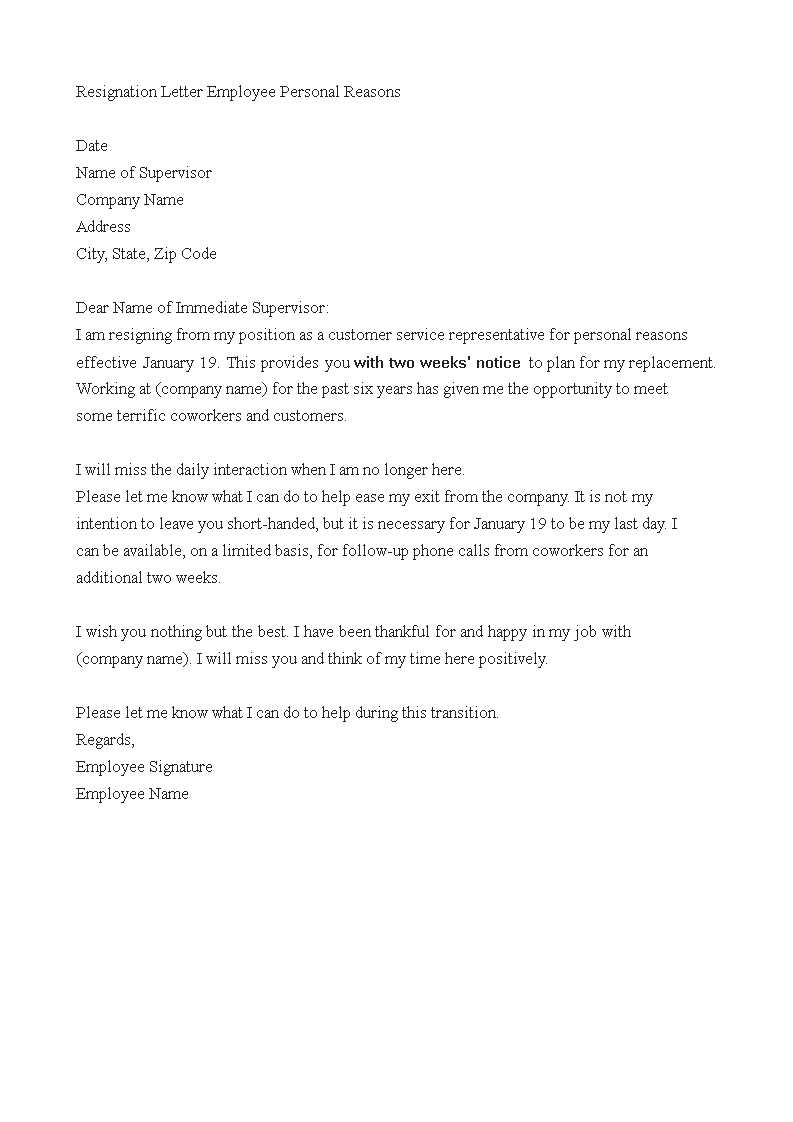
Timing is an essential aspect when deciding to leave your current position. The moment you choose to notify your employer can influence both your experience and the organization’s transition process. Making the decision at the right time ensures that you leave on good terms while also allowing the company to prepare for your departure.
Factors to Consider
There are several elements to take into account when choosing the best time to notify your employer:
- Company’s workload: If your company is going through a particularly busy period or critical project, leaving at this time might add unnecessary stress to the team. It’s often best to plan your departure after key deadlines or major projects are completed.
- Personal circumstances: Your own situation should play a significant role in deciding the timing. Consider your personal needs and how they align with your current job responsibilities.
- Notice period: Understand the required notice period in your contract. This allows you to plan your departure in advance, giving your employer adequate time to prepare for your exit.
- Professional relationships: Consider the impact on your colleagues and managers. Leaving at a time when your departure will cause minimal disruption helps maintain good working relationships and avoids unnecessary tension.
Leaving on Good Terms
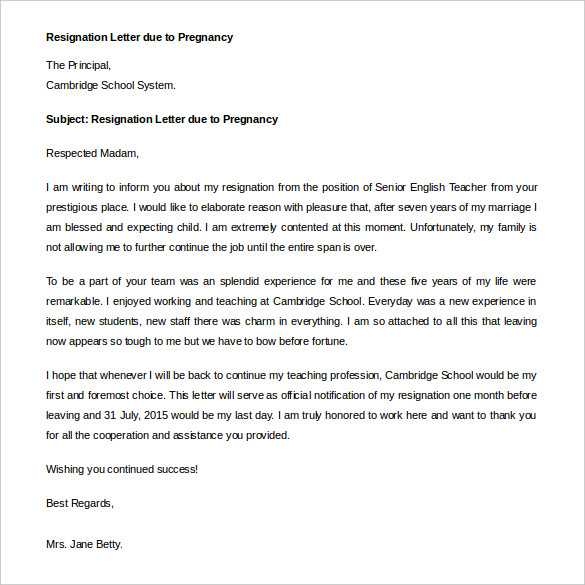
Choosing the right moment to leave not only reflects well on you as a professional, but it also allows the company to handle your transition smoothly. By making sure your exit is well-timed, you help ensure that your departure is positive for both parties and that you maintain valuable professional connections moving forward.